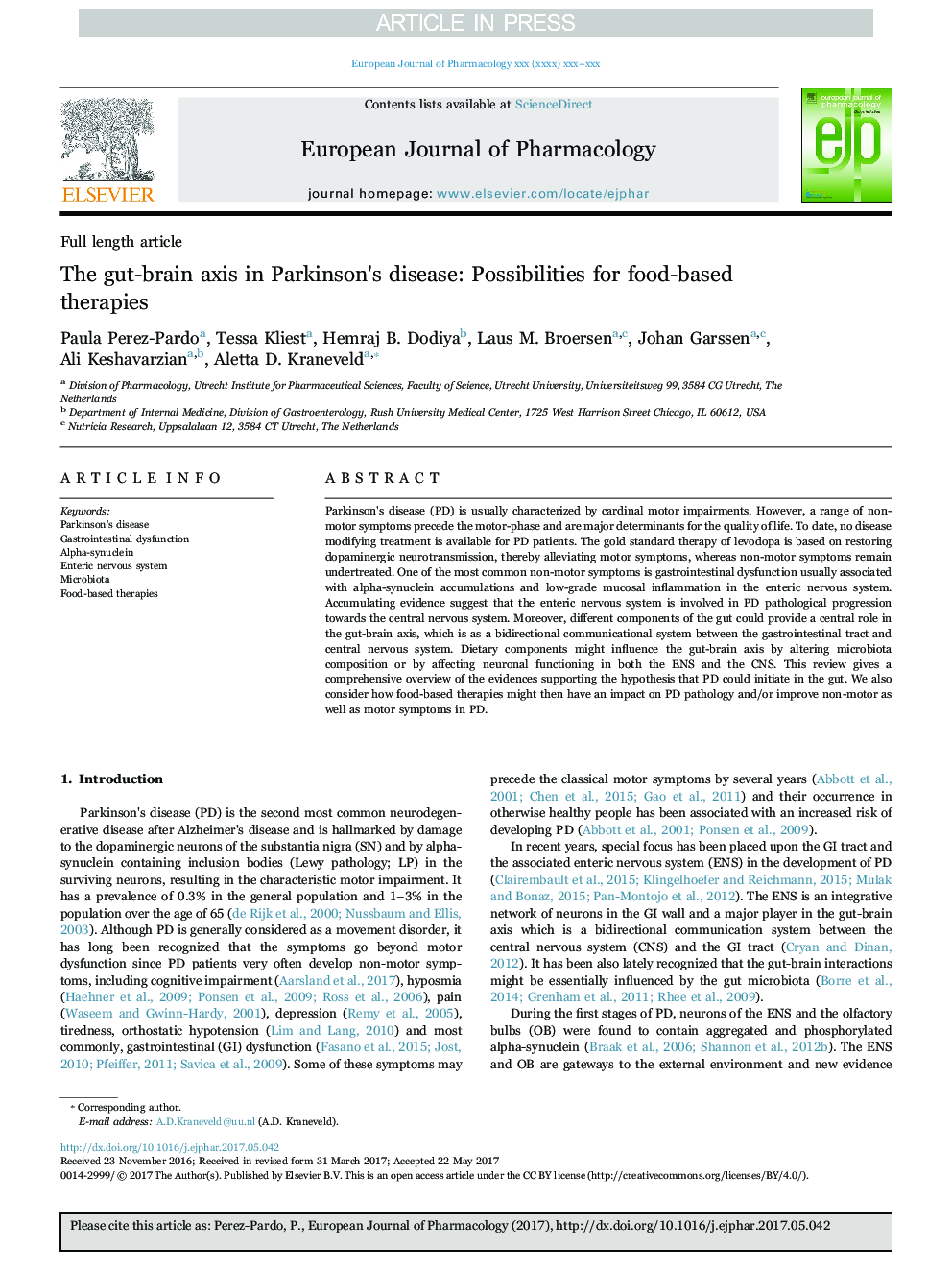| Article ID | Journal | Published Year | Pages | File Type |
|---|---|---|---|---|
| 8529759 | European Journal of Pharmacology | 2017 | 10 Pages |
Abstract
Parkinson's disease (PD) is usually characterized by cardinal motor impairments. However, a range of non-motor symptoms precede the motor-phase and are major determinants for the quality of life. To date, no disease modifying treatment is available for PD patients. The gold standard therapy of levodopa is based on restoring dopaminergic neurotransmission, thereby alleviating motor symptoms, whereas non-motor symptoms remain undertreated. One of the most common non-motor symptoms is gastrointestinal dysfunction usually associated with alpha-synuclein accumulations and low-grade mucosal inflammation in the enteric nervous system. Accumulating evidence suggest that the enteric nervous system is involved in PD pathological progression towards the central nervous system. Moreover, different components of the gut could provide a central role in the gut-brain axis, which is as a bidirectional communicational system between the gastrointestinal tract and central nervous system. Dietary components might influence the gut-brain axis by altering microbiota composition or by affecting neuronal functioning in both the ENS and the CNS. This review gives a comprehensive overview of the evidences supporting the hypothesis that PD could initiate in the gut. We also consider how food-based therapies might then have an impact on PD pathology and/or improve non-motor as well as motor symptoms in PD.
Keywords
Related Topics
Life Sciences
Neuroscience
Cellular and Molecular Neuroscience
Authors
Paula Perez-Pardo, Tessa Kliest, Hemraj B. Dodiya, Laus M. Broersen, Johan Garssen, Ali Keshavarzian, Aletta D. Kraneveld,
